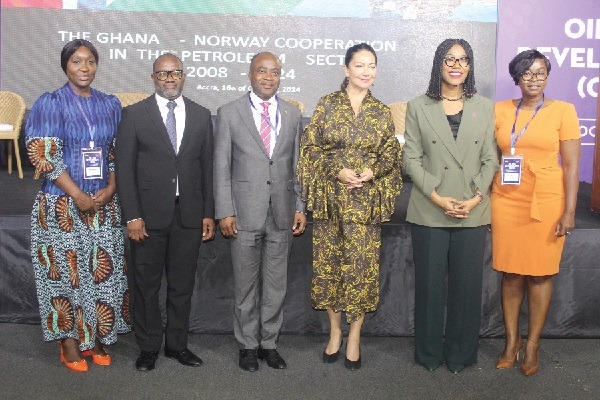Norway has announced its commitment to assist Ghana in enhancing its renewable energy capacity, leveraging the private sector as a primary driver for this initiative.
This renewed focus comes as Norway concludes its Oil for Development Programme, which aimed to aid Ghana in managing its upstream oil and gas industry following the discovery of oil in commercial quantities in 2007.
“While we are discontinuing the Oil for Development Programme, energy access remains a key priority for us, now with an emphasis on renewable energy,” said Norwegian Ambassador to Ghana, Ingrid Mollestad, during a recent event in Accra marking the cooperation between the two countries under the previous programme.
Established in 2005, Norway’s Oil for Development Programme has played a vital role in supporting developing nations like Ghana in the responsible management of their petroleum resources. The programme focused on a holistic approach to petroleum management, which included resource extraction, revenue management, environmental protection, and safety, ultimately aimed at poverty alleviation.
Ghana’s journey in the petroleum sector began with the Jubilee Field discovery in 2007. Recognizing the need for expert assistance, Ghana partnered with Norway in 2008 through a Memorandum of Understanding (MOU), laying the groundwork for the Oil for Development Programme, through which Norway shared its extensive expertise in petroleum management.
Ambassador Mollestad highlighted that although the Oil for Development Programme is ending, there remains significant potential for continued partnership in the sustainable management of natural resources, particularly as both nations are coastal states with a shared interest in ocean resource management.
Looking ahead, she acknowledged that despite concerns regarding the petroleum sector’s impact on climate change, oil and gas will continue to play a crucial role in many countries, including Ghana, for the foreseeable future.
Outcomes of the Collaboration
James Yamoah, Director of the Petroleum Directorate at the Ministry of Energy, shared some key achievements resulting from the Oil for Development Programme, including the establishment of a robust legal and administrative framework for the petroleum sector. This has led to updated laws, regulations, and policies that clearly define the roles of various institutions.
He noted the formation of the Petroleum Commission, which has been pivotal in separating regulatory functions from the commercial activities of the Ghana National Petroleum Corporation, thus creating a more transparent and efficient system. Norway has also played a significant role in strengthening Ghana’s Environmental Protection Agency (EPA) to oversee environmental aspects of oil and gas operations.
Furthermore, the partnership has helped Ghana develop a fiscal framework that ensures fair government revenue from petroleum while attracting international investment.
Cephas Adjei Mensah, Director of Research Statistics and Information Management at the Ministry of Environment, Science, Technology and Innovation, emphasized the strategic and beneficial nature of Ghana’s collaboration with Norway. He stated that the success of this partnership positions Ghana to explore further avenues for cooperation, with the institutional networks established providing a solid foundation for ongoing technical capacity building.
“Ghana remains committed to upholding the high standards set through this partnership, ensuring that our petroleum resources are managed sustainably for the benefit of all Ghanaians,” he affirmed.


